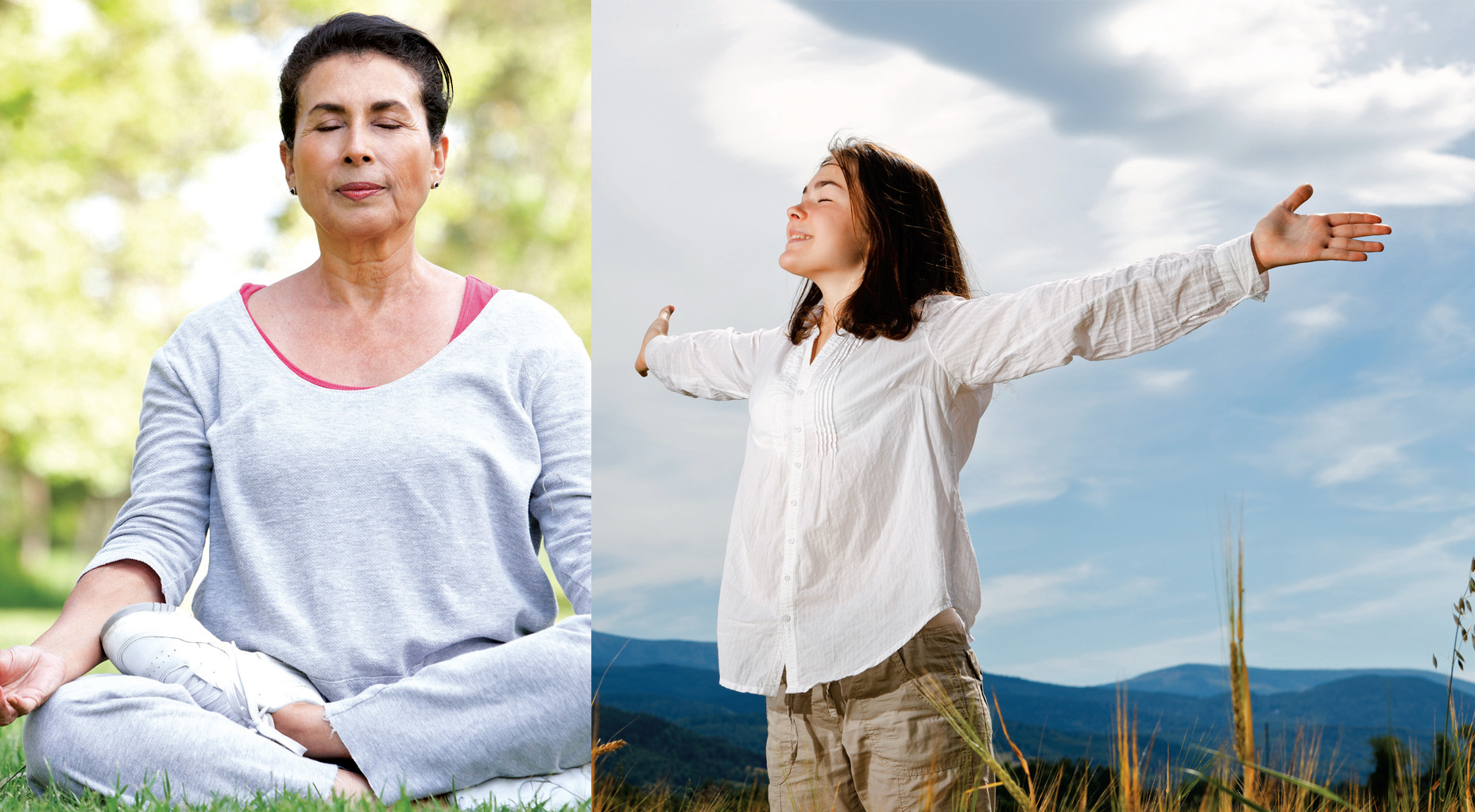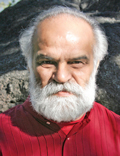Talking about the four noble truths, the Buddha is reported to have said, “jeevan dukkha hai,” life is suffering or misery. Dukkha means a lot of things. For example, anything temporary can be dukkha, including happiness, anything that is impermanent, illusory can be a dukkha.
People argue about this statement and say that it is a very depressing statement by an enlightened master. It is. But it is also a fact of life. For some people, life may not be so full of misery, but for the majority of people, it is. One does not have to be too sensitive to see or feel it, it is all around us. It is there even in the rich Western society. In spite of all the wealth and scientific progress, we have not been able to live happily and in harmony with our relationships and the rest of the world. The outer richness has not solved the inner misery and darkness. Everybody is in some kind of hopelessness and pain.
It is no use going into all kinds of details of suffering and misery of life—it is much better to find a way to end it as soon as possible—going beyond it. Osho, the enlightened mystic of modern times, gives us a simple method of transforming pain into compassion. It is a breathing technique.
He says, “When you breathe in, imagine that you are breathing in all the darkness and negativity in your life. Welcome it into your heart. Stop trying to resist, avoid or destroy it. That has been taking up all of your energy. As you are breathing in this heaviness, let it be absorbed into your heart before you exhale. And then the moment you breathe out, breathe out golden light. Breathe out your greatest lightness, your highest joy, love and blessing from your heart into the source of the negativity. You will soon transform all the darkness in your life with your breath.
Breathe out all the love that you have, all the blissfulness that you have, all the benediction that you have. When breathing out, pour your love into existence. This is the method of compassion: drink in all the suffering and pour out all the blessings. And you will be surprised what happens when you really do it. The moment you stop resisting all the darkness and heaviness in your inner world, there is no longer suffering.
The heart has the power to transform any energy to light. The heart is the essential alchemist. It can drink in any misery, pain or sadness and transform it into lightness. Trust the power of your heart. Once you have learned that your heart can do this magic, this miracle, keep practicing it again and again.

Experiment with this exercise and let yourself explore every dark area of your life. If you feel overwhelmed, don’t give up. It is often the coldest and darkest just before dawn. Just let yourself fully feel that which you cannot feel, what you’ve been resisting. Only then will you have mastered yourself. Continue doing this beautiful method of transforming pain into compassion for thirty days. You’ll get better at it and be able to welcome in all the heaviness of the world and pour out such great love and light that our entire planet will be transformed. You have the power within you to do miracles, use it! You’ll see how amazingly bright, brilliant and alive you will feel!”
Being alive, means that you are full of energy and then your life is no more a suffering, but a blessing. This blessedness does not happen in isolation—it is a sharing of bliss. It is a celestial party.
Osho illustrates this with a beautiful parable: In paradise one afternoon, in its most famous café, Lao Tzu, Confucius and the Buddha are sitting and chatting. The waiter comes with a tray that holds three glasses of the juice called “life,” and offers them. The Buddha immediately closes his eyes and refuses; he says, “Life is misery.”
Lao Tzu takes all the three glasses and he says, “Unless one drinks totally, how can one say anything?” Lao Tzu drinks all the three glasses and starts dancing!
The Buddha and Confucius ask him, “Are you not going to say anything?” And Lao Tzu says, “This is what I am saying – my dance and my song are speaking for me.” Unless you taste totally, you cannot say. And when you taste totally, you still cannot say because what you know is such that no words are adequate.

The Buddha is on one extreme, Confucius is in the middle. Lao Tzu has drunk all the three glasses – the one that was brought for the Buddha, the one that was brought for Confucius, and the one that was brought for him. He has drunk them all; he has lived life in its three-dimensionality.
Osho declares, “My own approach is that of Lao Tzu. Live life in all possible ways; don’t choose one thing against the other, and don’t try to be in the middle. Don’t try to balance yourself – balance is not something that can be cultivated. Balance is something that comes out of experiencing all the dimensions of life. Balance is something that happens; it is not something that can be brought about through your efforts. If you bring it through your efforts, it will be false, forced. And you will remain tense; you will not be relaxed, because how can a person who is trying to remain balanced in the middle be relaxed? You will always be afraid that if you relax you may start moving to the left or to the right. You are bound to remain uptight, and to be uptight is to miss the whole opportunity, the whole gift of life.
Don’t be uptight. Don’t live life according to principles. Live life in its totality, drink life in its totality! Yes, sometimes it tastes bitter – so what? That taste of bitterness will make you capable of tasting its sweetness. You will be able to appreciate the sweetness only if you have tasted its bitterness. One who knows not how to cry will not know how to laugh, either. One who cannot enjoy a deep laughter, a belly laugh, that person’s tears will be crocodile tears. They cannot be true, they cannot be authentic.”
 Swami Chaitanya Keerti, editor of Osho World monthly magazine and founding editor of Osho Times International, is the author of three books on Osho –Allah to Zen; The Osho Way: In Romance with Life; and Osho Fragrance. The director and spokesperson of Osho World Foundation, Swami Chaitanya Keerti regularly contributes articles on meditation to several newspapers and magazines and travels extensively to conduct meditation sessions.
Swami Chaitanya Keerti, editor of Osho World monthly magazine and founding editor of Osho Times International, is the author of three books on Osho –Allah to Zen; The Osho Way: In Romance with Life; and Osho Fragrance. The director and spokesperson of Osho World Foundation, Swami Chaitanya Keerti regularly contributes articles on meditation to several newspapers and magazines and travels extensively to conduct meditation sessions.




